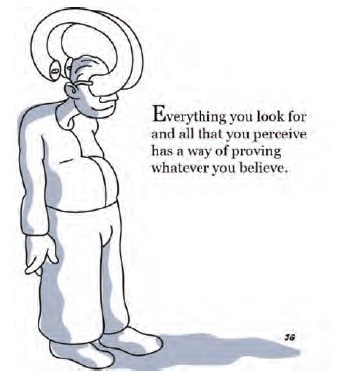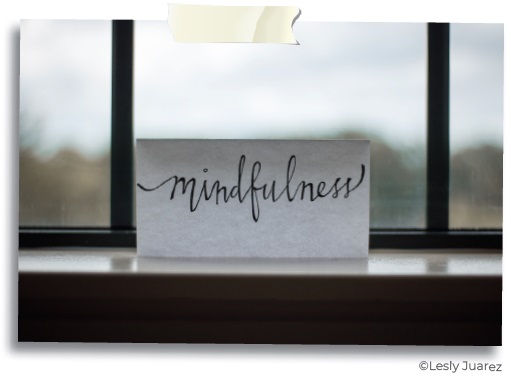Chapter 8
Reorient
From What about Me to What Can I Do?
“Yesterday I was clever, so I wanted to change the world. Today I am wise, so I am changing myself.”
– Rumi
Professor Srikumar Rao1 is often described as a happiness guru and a modern-day-Yoda2 (to which I instinctively reacted with an eye roll). But when I checked out his work, he quickly convinced me he has vitally important insights about self-awareness. He helped me understand how breaking out of the prison of egocentric thinking is crucial to reorienting ourselves to living more in accord with our values and clarifying our purpose.
You may want to watch his TED talk; he is an incredibly engaging speaker, with much wisdom to offer. One point he makes especially jumped out at me.
Dr. Rao contends that we live in a “me-centered universe.” I call it the egosystem. Life today, especially all of our distracting technology and the media that wants to hog our attention, seduces us into what I refer to as accidental narcissism—thinking about ourselves almost constantly, even subconsciously when we don't intend to.
Accidental narcissism—thinking about ourselves almost constantly, even subconsciously when we don't intend to.
As Dr. Rao points out, no matter what's happening in our lives, we tend to ask ourselves, “What's the impact on me?” As he said at Mindvalley Extraordinary Summit, “It doesn't take very long to bring the conversation, in your head, to what's the impact on me? Your spouse gets a great job offer, gee, how is this going to affect our relationship?”
We need to break out of this me-centered thinking if we are to begin living more in accord with our authentic values and with a clear and strong sense of purpose. Dr. Rao describes the connection to purpose this way:
Here's something you should know about the ‘me-centered universe.' That is where you spend the vast majority of your time. If that is where you predominately live, you are going to live, by and large, a mediocre, frustrated existence, punctuated with flashes of pleasure. That's just the way it is.
The only way out of that . . . is if you can find a cause which is bigger than you are, a cause that brings a greater good to a greater community, you have tremendous flexibility in defining the greater good and greater community . . . but, unless you can find something that is important to you, to which you can subsume your whole life, or at least a big chunk of it, and which does something to benefit a larger group, you're going to live a mediocre existence.
Breaking free is, he admits, very difficult. But he ended his presentation with good news: “Even a modest stride will have a tremendous impact on your life.”3
“Here's something you
should know about the
‘me-centered universe, you are going to live, by and large, a mediocre, frustrated existence, punctuated with flashes of pleasure.”
How do we begin? The first step is to come to terms with the fact that how we see ourselves is different from how we really are, and that what we promise ourselves about how we'll conduct our lives is different from the way in which we often do. Our what about me focus prevents us from seeing accurately how we're acting and reinforces our self-biased beliefs.

We tend to justify our mistakes and dodgy behavior with self-serving rationalizations and to see what's happening to us and the behavior of those around us through a self-interested lens. This is, again, not our fault. We evolved this way, and a degree of self-interest is important to thriving. But we've got to get the balance right.
To see more accurately, we have to cultivate self-awareness.
Thinking about ourselves is not the same as knowing ourselves.
That doesn't mean just thinking about ourselves. Thinking about ourselves is not the same as knowing ourselves. Often, we invest in the former, without ever getting to know who we really are and why. As such, we can't envision who we need to be and how to get there.

Tasha Eurich, organizational psychologist and author of Insight: The Surprising Truth About How Others See Us, How We See Ourselves, and Why the Answers Matter More Than We Think,4 found in her research on self-awareness that 95% of those she studied thought they were self-aware, while only 10–15% actually were self-aware, which she interpreted as meaning around 80% were lying to themselves about lying to themselves.
This is a great shame, because there are so many benefits to being self-aware. Psychologist Daniel Goleman, author of the influential book Emotional Intelligence, sees self-awareness as a foundation for emotional intelligence—the ability to monitor your own emotions as well as the emotions of others, to differentiate and identify various emotions correctly, and to use that emotional information to guide your thinking and behavior with intention.5
Additional benefits are that self-aware people are generally more positive thinkers. They are also more compassionate with themselves and others and they tend to act more consciously, rather than passively and reactively. This fosters psychological well-being, and more values-driven, purposeful living.
Self-aware people are generally more positive thinkers.
It also helps people be more successful in their work. A Green Peak Partners and Cornell University study6 of 72 executives at companies with revenue ranging from $50 million to $5 billion found that a “high self-awareness score was the strongest predictor of overall success.”
Most of us spend almost half our time in our day-to-day lives operating on automatic pilot. We're unconscious of what we're doing and feeling, as our mind wanders everywhere but the here and now.
Yet most of us spend almost half our time in our day-to-day lives operating on automatic pilot. We're unconscious of what we're doing and feeling, as our mind wanders everywhere but the here and now, according to psychologists Matthew Killingsworth and Daniel T. Gilbert of Harvard.7
Introspection about What Not Why
In a presentation on this subject at TEDxMileHigh, psychologist Tasha Eurich offered powerful insight about the key mistake most of us make when we try to become more self-aware. “The approach you're using to examine your thoughts, your feelings and your motive, you know, introspection. Well, you're probably doing it . . . totally wrong. There is a reason so few of us are self-aware,” she said.8
Her research uncovered that our efforts to become more self-aware through introspection actually make us more stressed and depressed. She learned that in trying to take control of our lives in this way, we ironically feel less in control of our lives. Her realization was that self-analysis “can trap us in a mental hell of our own making.”
The problem, she has found, is that we ask the wrong question. When we're trying to become self-aware, we ask why? We're generally focused on trying to figure out why something happened to us—why me?
“Why is this happening to me?”
“Why do I feel this way?”
“Why is everyone out to get me?”
“Why can't things just go right for me?”
“Why can't I focus?”
“Why can't I create the way I used to?”
This seems perfectly logical to us. After all, we learned from an early age that if we want to understand things, we should ask why questions. Asking why is part of developing our sense of ourselves as independent people, beginning the process of understanding the way the world works. Most children go through a phase as they're developing their awareness of themselves as an independent being, generally between age two and three, of incessantly asking why. As a parent I can say it's a great phase—until it's not. All the why questions start to drive you crazy, in part because you know so few answers!
Wanting to know why things are as they are is a sign of taking responsibility for making our way in the world. Unfortunately, when it comes to self-awareness, though, asking why works against us. Tasha Eurich has learned, “When we ask why, it doesn't lead us to the truth about ourselves, it leads us away from it.” We get so caught up in looking backward, trying to establish a causal chain of events that have led us to where we are, that we're not focusing on the possibilities of the present and how we can move forward. In other words, we get stuck in the egosystem.
Wanting to know why things are as they are is a sign of taking responsibility for making our way in the world. Unfortunately, when it comes to self-awareness, though, asking why works against us.
Eurich says that we have to break out of the why trap.
In her research she found that those who are truly self-aware share something interesting in common. They don't ask why. Instead, they're focused on what. They ask themselves questions like:
“What's important to me?”
“What situations make me feel terrible and what do they have in common?”
“What is my purpose in life, right now, and what will it take for me to fulfill it?”

Eurich believes that whereas asking why has us looking in the rearview mirror, which blocks or misdirects self-awareness, asking what moves us forward productively, helping us arrive at answers that allow for positive introspection and self-assessments.
To keep our minds from reverting back to the why and the what about me?! from what requires mindfulness, the ability to be aware of our thoughts and to redirect them. If we don't build up our mindfulness muscles, then, as novelist David Foster Wallace said in a famous commencement speech, we inevitably get caught up again in the egosystem:
If I don't make a conscious decision about how to think and what to pay attention to, I'm gonna be pissed and miserable every time . . . because my natural default setting is the certainty that situations . . . are really all about me.9
The good news is that cultivating mindfulness is a source of great pleasure—the fulfilling, meaningful sort of pleasure that enriches our lives. We also know a great deal about how to do it. The next step in our lifescaling journey is spending a little time getting mindful.

Notes
1https://www.youtube.com/watch?v=vBlWbV64N4I
2https://blog.mindvalley.com/the-power-of-positive-thinking/
3ibid
4https://www.amazon.com/Insight-Surprising-Others-Ourselves-Answers/dp/0525573941/ref=sr_1_1?ie=UTF8&qid=1532982993&sr=8-1&keywords=tasha+eurich+insight&dpID=51KVt2GHacL&preST=_SY291_BO1,204,203,200_QL40_&dpSrc=srchash
5 https://positivepsychologyprogram.com/emotional-intelligence/le
6https://www.amanet.org/training/articles/new-study-shows-nice-guys-finish-first.aspx?pcode=XCRP
7 https://www.flourishfoundation.org/wp-content/uploads/2014/04/KILLINGSWORTH-GILBERT-2010.pdf
8https://www.ted.com/talks/tasha_eurich_increase_your_self_awareness_with_one_simple_fix
9https://www.1843magazine.com/story/david-foster-wallace-in-his-own-words